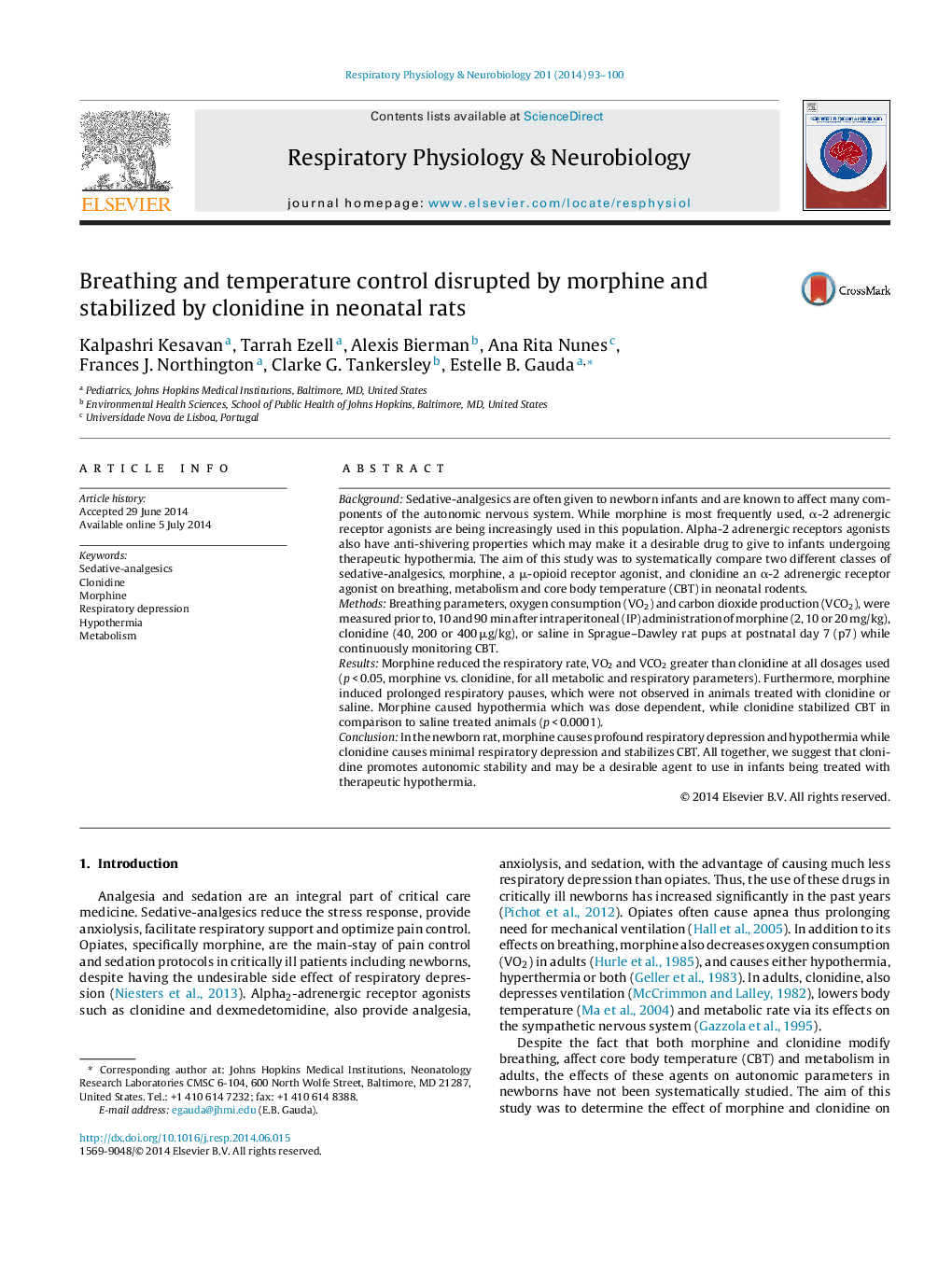| کد مقاله | کد نشریه | سال انتشار | مقاله انگلیسی | نسخه تمام متن |
|---|---|---|---|---|
| 2846984 | 1571327 | 2014 | 8 صفحه PDF | دانلود رایگان |
• We compared two sedative-analgesics on breathing and temperature in neonatal rats.
• Morphine causes profound respiratory depression and hypothermia.
• Clonidine stabilizes body temperature, with only minimal effects on respiration.
BackgroundSedative-analgesics are often given to newborn infants and are known to affect many components of the autonomic nervous system. While morphine is most frequently used, α-2 adrenergic receptor agonists are being increasingly used in this population. Alpha-2 adrenergic receptors agonists also have anti-shivering properties which may make it a desirable drug to give to infants undergoing therapeutic hypothermia. The aim of this study was to systematically compare two different classes of sedative-analgesics, morphine, a μ-opioid receptor agonist, and clonidine an α-2 adrenergic receptor agonist on breathing, metabolism and core body temperature (CBT) in neonatal rodents.MethodsBreathing parameters, oxygen consumption (VO2) and carbon dioxide production (VCO2), were measured prior to, 10 and 90 min after intraperitoneal (IP) administration of morphine (2, 10 or 20 mg/kg), clonidine (40, 200 or 400 μg/kg), or saline in Sprague–Dawley rat pups at postnatal day 7 (p7) while continuously monitoring CBT.ResultsMorphine reduced the respiratory rate, VO2 and VCO2 greater than clonidine at all dosages used (p < 0.05, morphine vs. clonidine, for all metabolic and respiratory parameters). Furthermore, morphine induced prolonged respiratory pauses, which were not observed in animals treated with clonidine or saline. Morphine caused hypothermia which was dose dependent, while clonidine stabilized CBT in comparison to saline treated animals (p < 0.0001).ConclusionIn the newborn rat, morphine causes profound respiratory depression and hypothermia while clonidine causes minimal respiratory depression and stabilizes CBT. All together, we suggest that clonidine promotes autonomic stability and may be a desirable agent to use in infants being treated with therapeutic hypothermia.
Journal: Respiratory Physiology & Neurobiology - Volume 201, 15 September 2014, Pages 93–100
